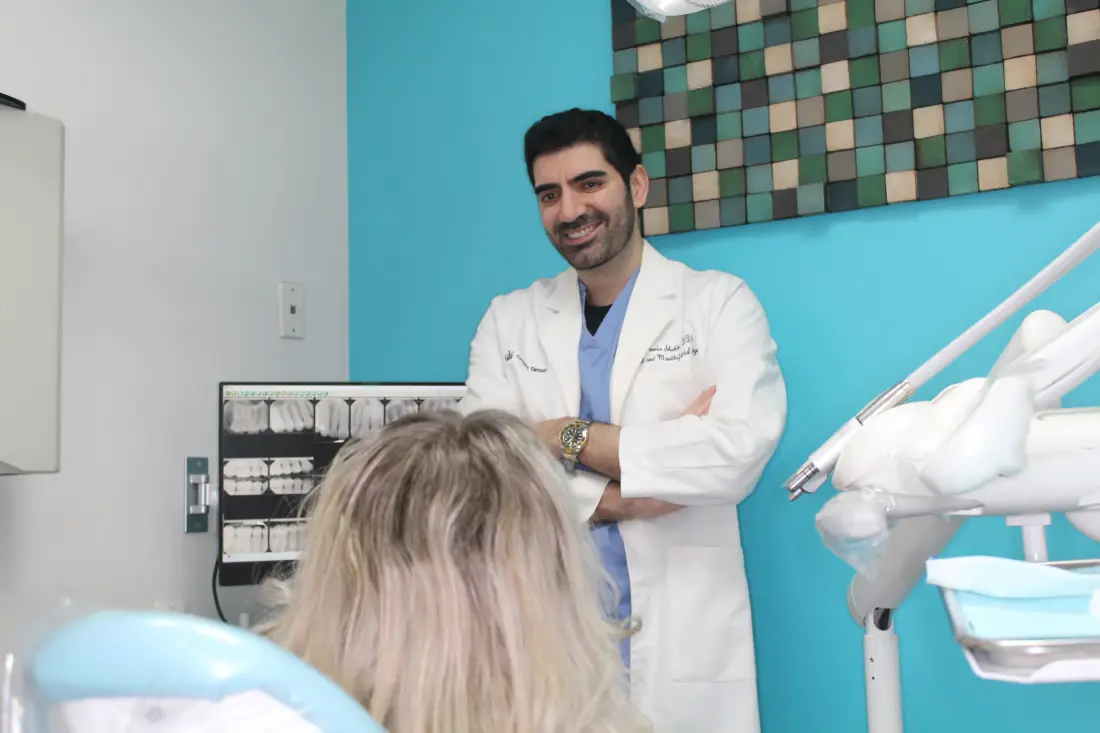Do Braces Hurt?

Braces are one of the most effective and efficient ways to treat malocclusions. The most common malocclusions include underbite, overbite, and overcrowding. These can lead to health problems as well as confidence issues. Treatment for these conditions is most often done using traditional braces, but the most common question orthodontists are asked is, ‘Do dental braces hurt?’
The honest answer is that the application of dental braces does not hurt! There is nothing to be anxious about going into the orthodontist’s office, but some discomfort or soreness is to be expected after the archwire is engaged in the braces. This should only last a few days.
What to expect when getting dental braces
Dental braces are made up of either ceramic or metal brackets affixed to each tooth individually. They are connected by an archwire that fits into the bracket slots. The archwire gently moves the teeth into proper alignment throughout the treatment and is sometimes assisted with elastic or wire ties. Self-ligating brackets do not require rubber or wire ties.
In cases where the patient suffers from overcrowding, the orthodontist may perform extractions to ensure that there is enough space for the proper alignment of the teeth.
Once the orthodontist and patient are ready for the application of braces, the patient can expect the following:
- Placement day – This is when the braces are applied to the teeth. The patient should feel no pain but may experience soreness afterward.
- Two days after placement – During this time, the patient will be getting used to life with braces. The pressure of the realignment process may provide some discomfort. Patients should avoid hard, difficult-to-chew foods in favor of a more liquid-based diet until the braces feel comfortable.
- Five days after placement – By this time, the initial discomfort caused by braces should be gone. The teeth will have acclimated to the braces. The patient can return to their normal diet, though may still struggle eating especially hard foods.
- Orthodontic appointments – Patients must return to the orthodontist regularly to have the rubber or metal ties changed and to have the archwire adjusted. This ensures that the proper amount of pressure is always being applied to the teeth. The patient may experience some discomfort after each orthodontic appointment, but the feeling will fade in a matter of days.
- Dealing with discomfort – Some discomfort is to be expected with braces, but there are ways patients can greatly reduce this feeling whenever it occurs throughout their treatment.
Relief wax provided by the orthodontist can be applied to the braces as necessary to alleviate irritation to the inner cheeks and lips. Over-the-counter pain medication like Advil or Motrin can be taken to relieve soreness as well. Another remedy is to chew sugar-free gum to increase blood flow to the mouth. This reduces discomfort and encourages the teeth to realign faster, too.
If you have any questions or concerns about orthodontic treatment, please contact Brooklyn Dental Spa.